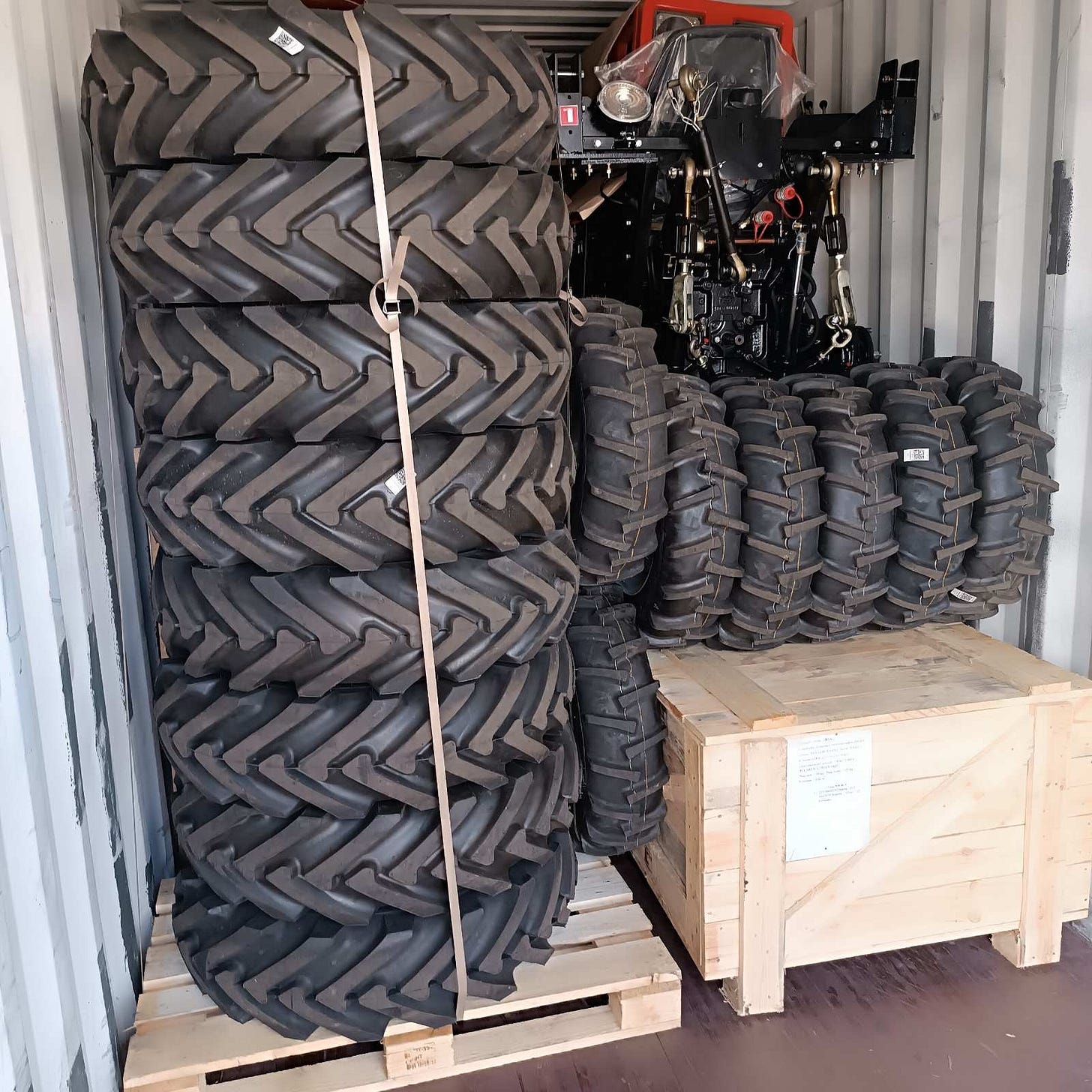August 8 - 14, 2024
Imprisoned Cuban influencer's trial postponed . . . Belarusian tractors for Cuban Rum . . . Castro adversary Celia Cruz honored on new US quarter
Thanks for being here. I know this is somber stuff—sniffing around an authoritarian regime’s dirty laundry. But the Cuban government, unlike most dictatorships, has powerful and influential defenders who work hard to clean up its record of oppression. With more than 70% of the world’s population living under some form of dictatorship, those of us who’ve lucked out and get to live in messy democracies can’t afford to forget what’s at stake. I think that’s why spending time with awful injustices matters. It’s a way to remind ourselves of what we have and what we could so easily lose.
Prosecution postpones trial of 22-year-old political prisoner at last hour without explanation
“This is their way of harming us psychologically. My daughter is innocent. Speaking the truth isn’t a crime.” Norma Pérez Ferrer, mother of political prisoner Sulmira Martínez Pérez.
Sulmira Martínez Pérez’s trial for “crimes against the constitutional order” and “contempt,” scheduled for 12 August, was postponed without explanation, according to her mother’s statements to Diario de Cuba (Madrid). The 22-year-old anti-regime activist was imprisoned on 10 January 2023 after inviting her Facebook followers to protest. “We need organization . . . Spread the word! Let’s plan another 11J,” she wrote in one post.
According to Cuban authorities, Martínez’s actions were aimed at “changing the political, economic, and social order established in the Constitution of the Republic.” The prosecution seeks 10 years imprisonment for the alleged crimes.
Although Martínez had no previous criminal antecedents, the prosectuion demanded her imprisonement while awaiting trial. She’s been in precautionary detention for the last 17 months at the women’s maximum security prison in Guanajay.
Martínez’s mother, Norma Pérez Ferrer, told Diario she received documentation with formal charges against her daughter only this past June and was notified of the trial date just one week before the trial. “[Sulmira] is even more upset . . . I’ve incurred additional costs, and we won’t know what will happen to her . . . [Sulmira] thought she’d be free of the uncertainty . . . this is just a way to harm us psychologically,” she told Diario.
After her January 2023 arrest, Sulmira was interrogated for 40 days in the notorious Villa Marista, Cuban political police headquarters. While under interrogation she appeared on the propagandistic program Razones de Cuba, where her mother said Martínez was forced to confessed. Martínez told the program’s host that she “. . . always wanted to stand out on Facebook . . . I opened an account . . . I did it [anti-revolutionary posts] for the money. “ Martínez implicated a person outside of Cuba whom the regime has accused of inciting anti-regime activity on the island for pay.
“The day she was detained they took her computer, three cell phones, her credit cards, and a camera she had. In the interrogations they asked who is paying her, but her cards have no money on them,” the young woman’s mother said when she first reported the case in February 2023.
Razones de Cuba’s host, Humberto López, didn’t produce evidence of the Sulmira’s supposed profiting from her anti-revolutionary activities—other than her signed statement, obtained during her 40-day of interrogation at Villa Marista. López’s frequent interviews of political prisoners undergoing interrogation have earned him activists’ condemnation.
“For those who say if you push you won’t get hurt: I’m planning a protest, it’s to the street, not behind a screen,” Martinez wrote in one of her posts.
“I know my daughter is innocent. . . The documents they’ve produced are full of lies,” Pérez Ferrer, who is recovering from Oropouche fever, told Diario.
Pérez Ferrer says the only detail she’s been given is that her daughter’s new trial date will be announced in September.
Belarusian tractors for Cuban rum

Cuba’s new barter agreement with Belarus is bearing fruit. Parts for the first 12 Belarusian diesel-powered tractors were shipped by sea to Havana on 8 August. Cuba’s side of the deal is to supply Belarus with medicine, tobacco, coffee or rum of equivalent value. The unconventional barter agreement benefits Cuba, which has struggled since the revolution to accumulate enough hard currency for international trade.
Tractors are crucial for Cuban farmers, who primarily use oxen and other animal power to plow fields and deliver their crops to Acopio, the state-run company that oversees agricultural production and distribution. Cuban farmers must sell to Acopio at the prices the government sets—which are significantly lower than black market prices. The government began issuing permits in recent years that allow certain farmers to sell to private individuals, but the farmers must first meet the quotas owed to Acopio.
Tractor sales have been monopolized by the state for decades. Most farmers who own tractors have inherited them from their grandparents or even great grandparents. The severe tractor shortage contributes to low agricultural productivity, although farmers also complain of lacking everything from fertilizer to enough water to sustain crops during Cuba’s scorching summers.
The small 25-35 horsepower Belarusian tractors are similar to ones produced by Cleber, an American company that had secured a deal in 2015 with Cuba to build its tractors at the Mariel Special Development Zone. The US Treasury Department’s OFAC (Office of Foreign Assets Control) approved Cleber’s plans, which would have resulted in the first American factory in Cuba in more than 50 years.
But Cuba nixed the project the following year, citing safety and environmental concerns and saying the new company didn’t have enough experience with the product. Alabama based Cleber had planned to produce 1000 new tractors per year for the Cuban government. Oggún tractors, named after a powerful Santería deity, are gas powered, reasonably priced, and designed for small plot, sustainable, and organic farming.
The 12 Belarusian tractors are considered a test and will be used to develop an assembly and distribution chain for the future. It’s unknown if Cuba has fulfilled its commitments for this phase of the barter agreement, which expires in September.
In July, Cuba’s economic minister, Joaquín Alonso Vázquez, announced that exports of rum and coffee had fallen short of the goals, a sign of possible complications for Cuba in the Belarusian barter deal.
New Celia Cruz US Quarter
Note: Celia is pronounced Cehlia, not Ceelia.
The US Mint announced a new Celia Cruz quarter, the 14th in its American Women’s Quarters Program. Cruz, a Cuban American cultural and musical icon known as the Queen of Salsa, was one of the most popular Latin artists of the 20th century.
Castro blacklisted Cruz, a vocal critic of the revolutionary government, and members of her band, Sonora Matancera, prohibiting them from returning home after they had left Cuba for a musical tour in 1960. Cruz petitioned the government in 1962 for permission to return to visit her ailing mother and, later, for her burial. The Cuban government denied both requests.
Cruz became a US citizen soon after her forced exile. She was a vocal critic of the revolution’s oppression and a symbol of resistance and a free Cuba for Cubans around the world. In Cuba, the regime banned her music and tried to erase her cultural legacy.
The regime continues to forcibly exile activists, dissidents, and artists and journalists who criticize it. In other cases, the regime “regulates” opposers, which prohibits them from leaving the island. Many Cubans have learned they’ve been regulado only as they attempted to board flights leaving the island. When they’ve asked the reason for the prohibition, they’ve often been told: “because you’ve been regulated.”
Celia Cruz died at the age of 77 in New Jersey in 2003. Her radiant smile and much-celebrated call to dance, ¡Azúcar!, are now captured on a coin of the country that gave her a new home where she could flourish.

On a personal note . . . As a kid growing up in New Hampshire and trying hard to blend in, Celia’s unabashed Cuban-ness embarrassed me. I remember lowering the windows whenever my mother played her Cuban records. When I grew wiser, I saw how wrong I’d been and how gloriously those artists had held on to their identities despite being uprooted from their Cuban lives. When the Buena Vista Club came to Boston, I bought two tickets, for Mami and me, and we danced in our seats throughout that concert at the Orpheum Theater. One of my happiest memories and a long overdue attempt to redeem myself.
Here's a link to Celia’s 2003, “Rie y Llora” (Laugh and Cry). I dare you to sit still while you listen.
And here’s Celia winning a Latin Grammy in 2002 for “La Negra Tiene Tumbao.” She doesn’t sing in this 1-minute clip, but her awesome humanity and spirit come through like a song. Hope you enjoy it.







